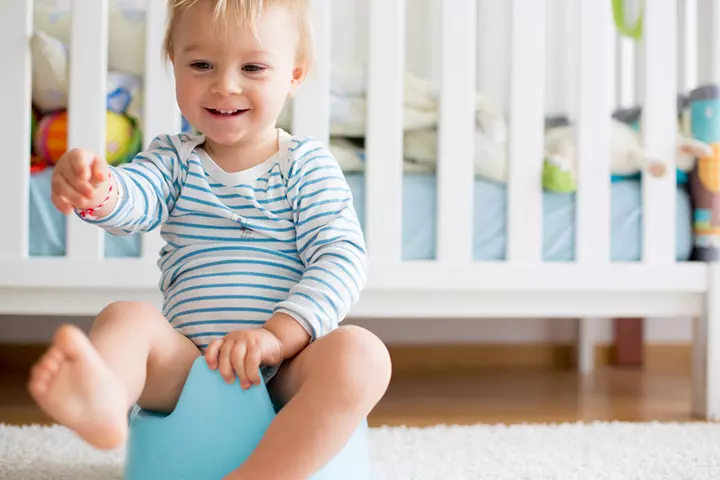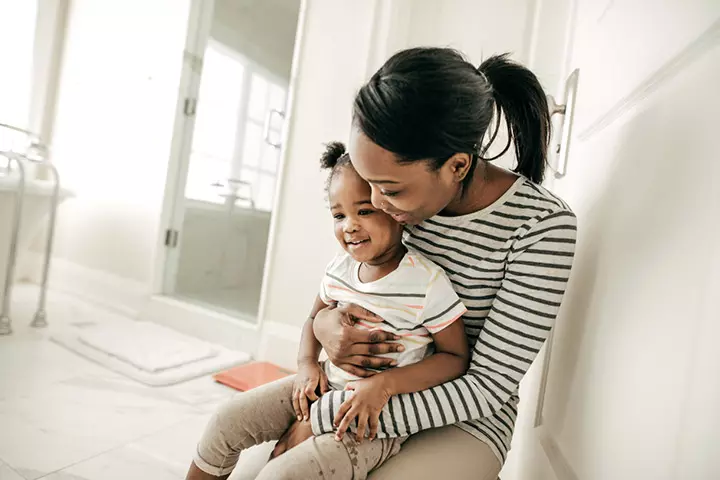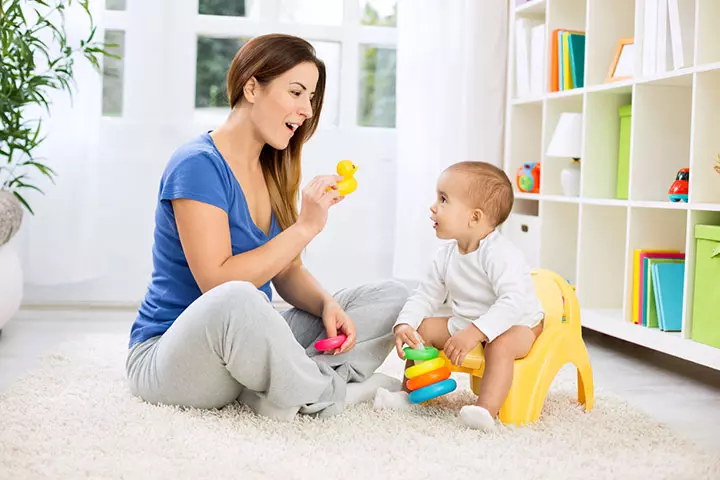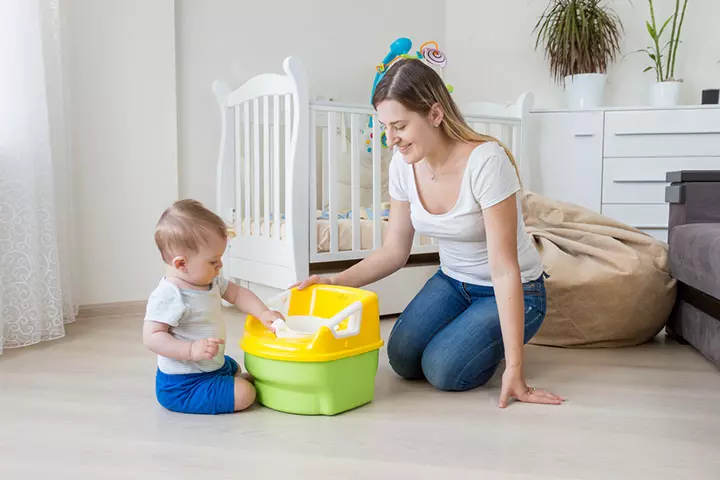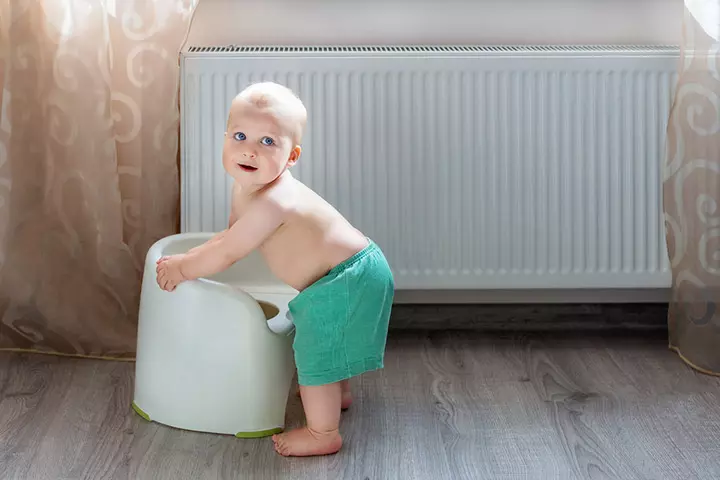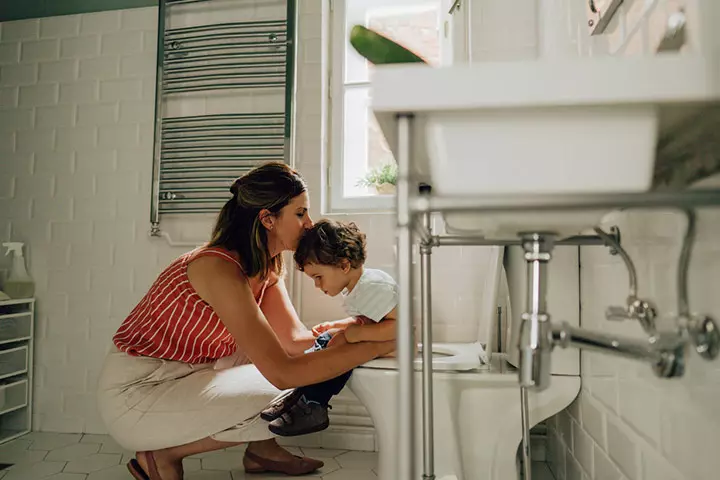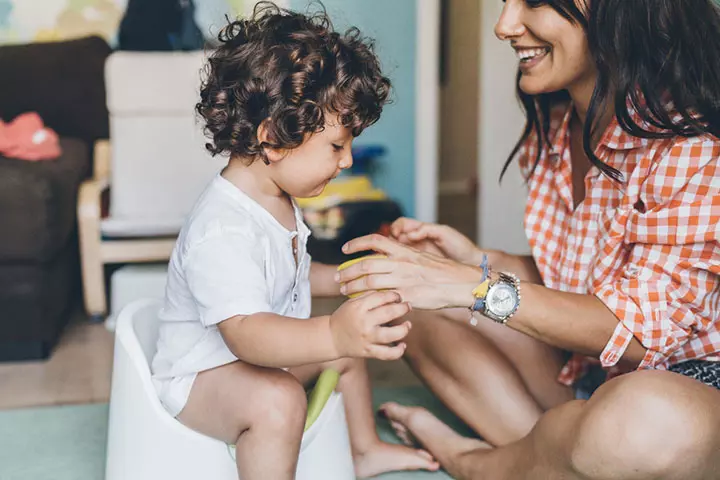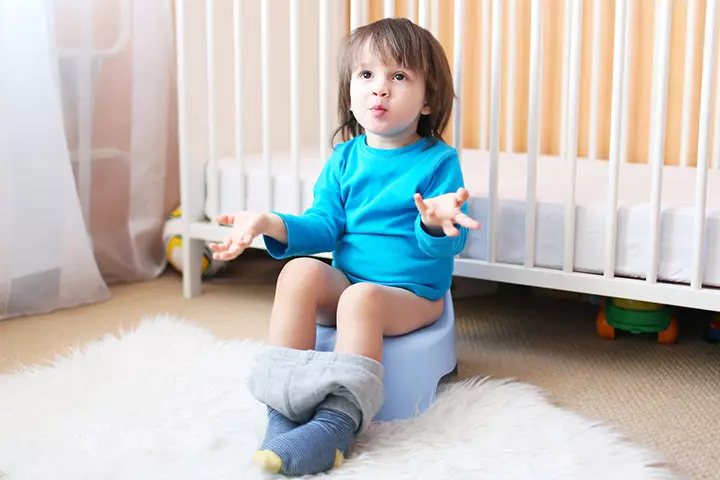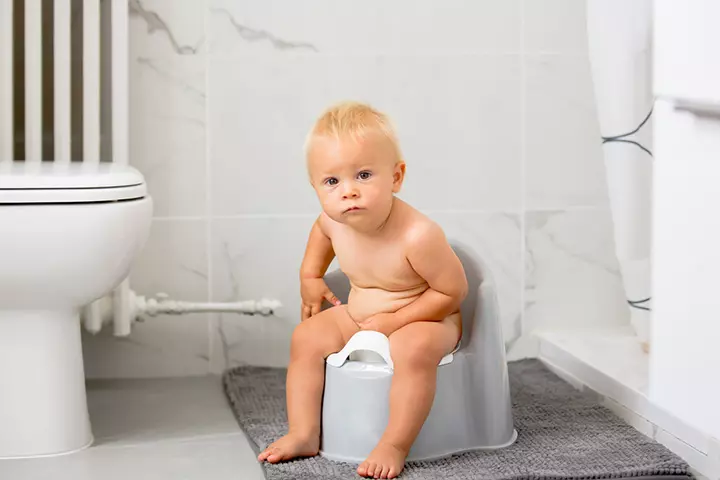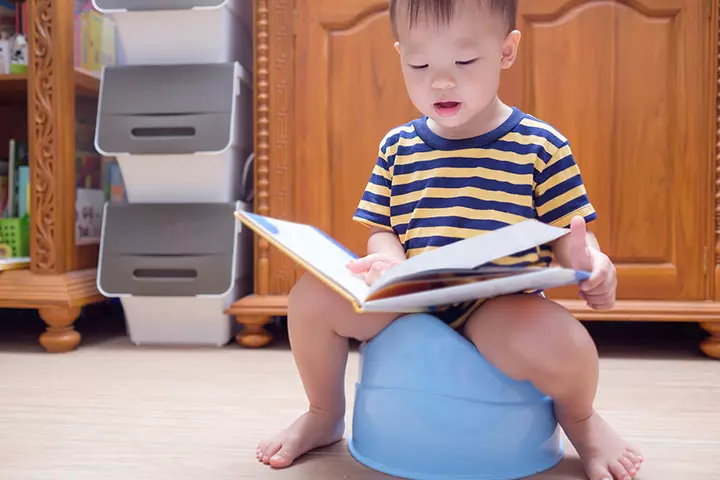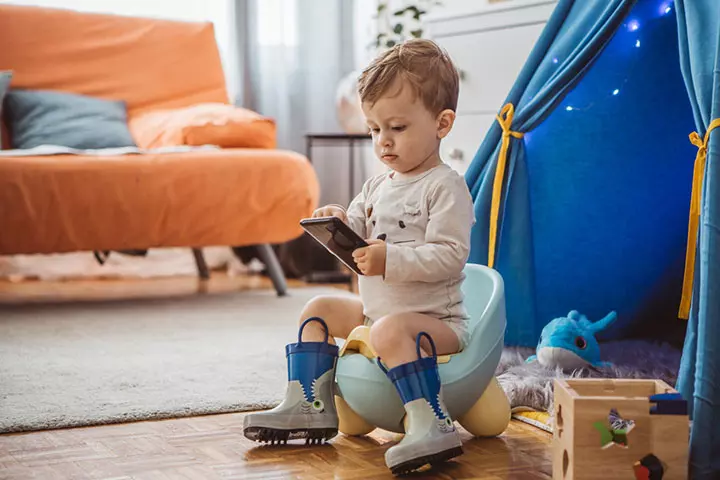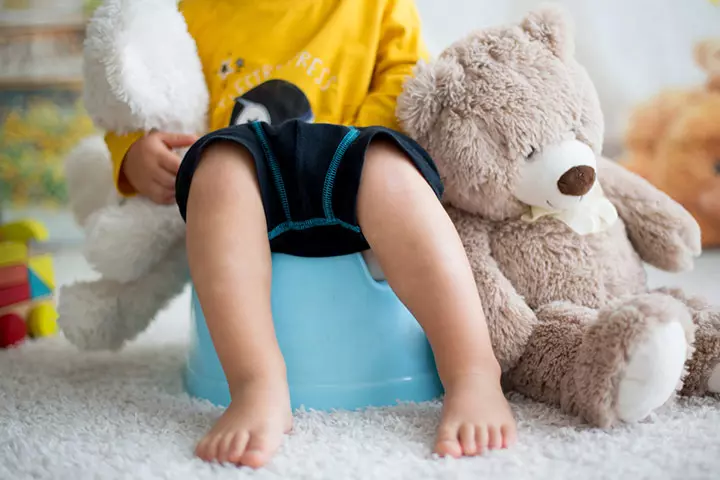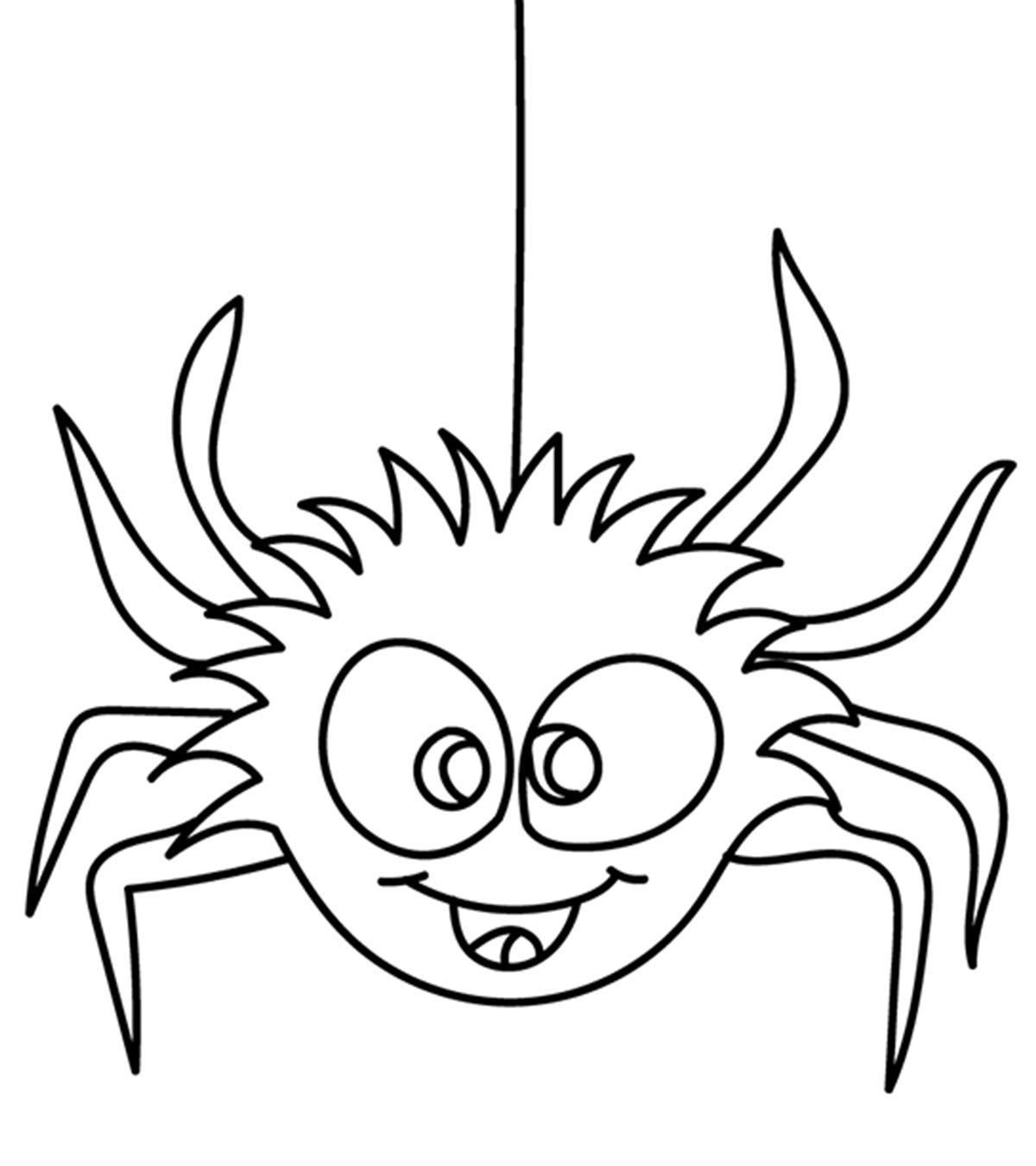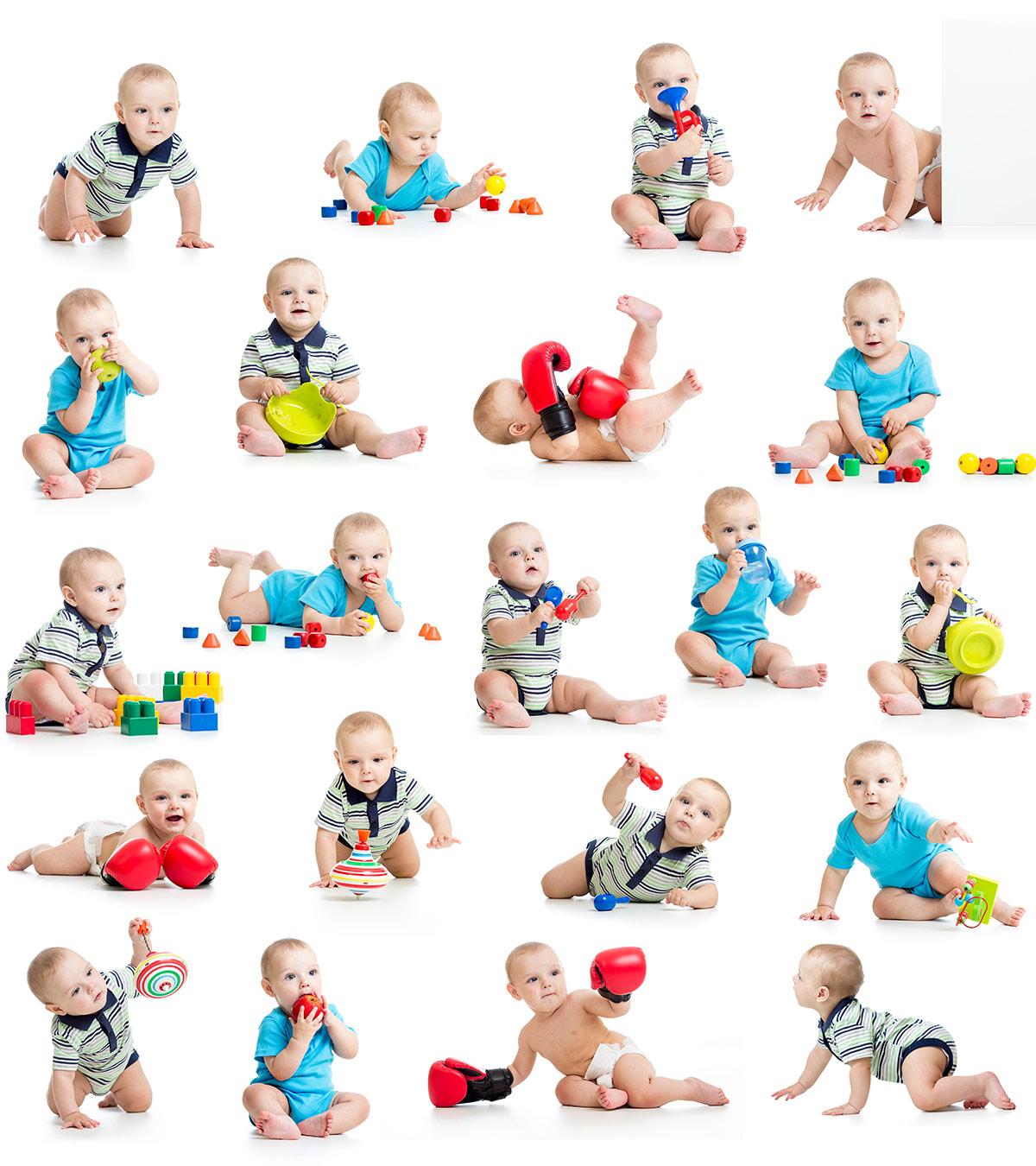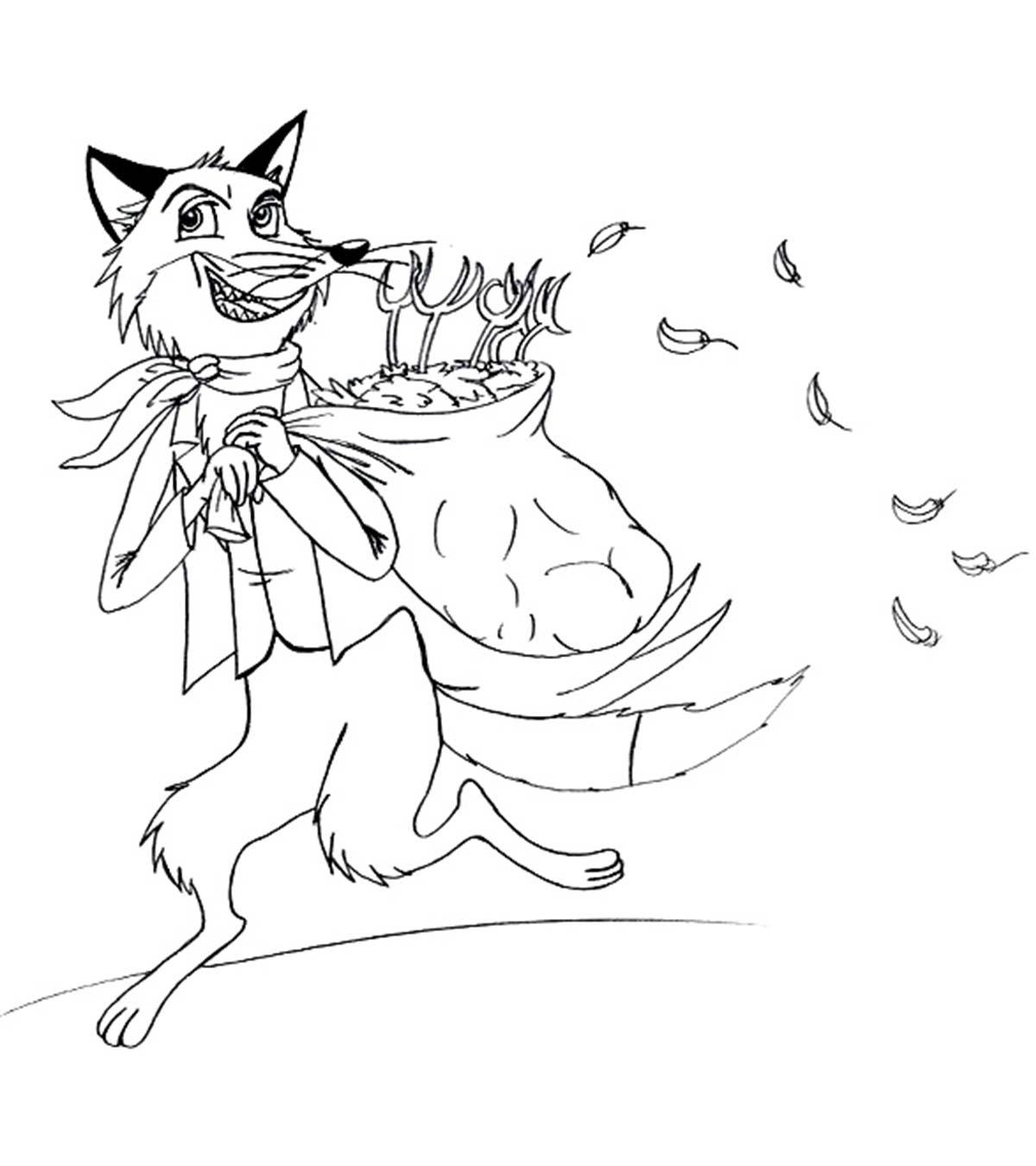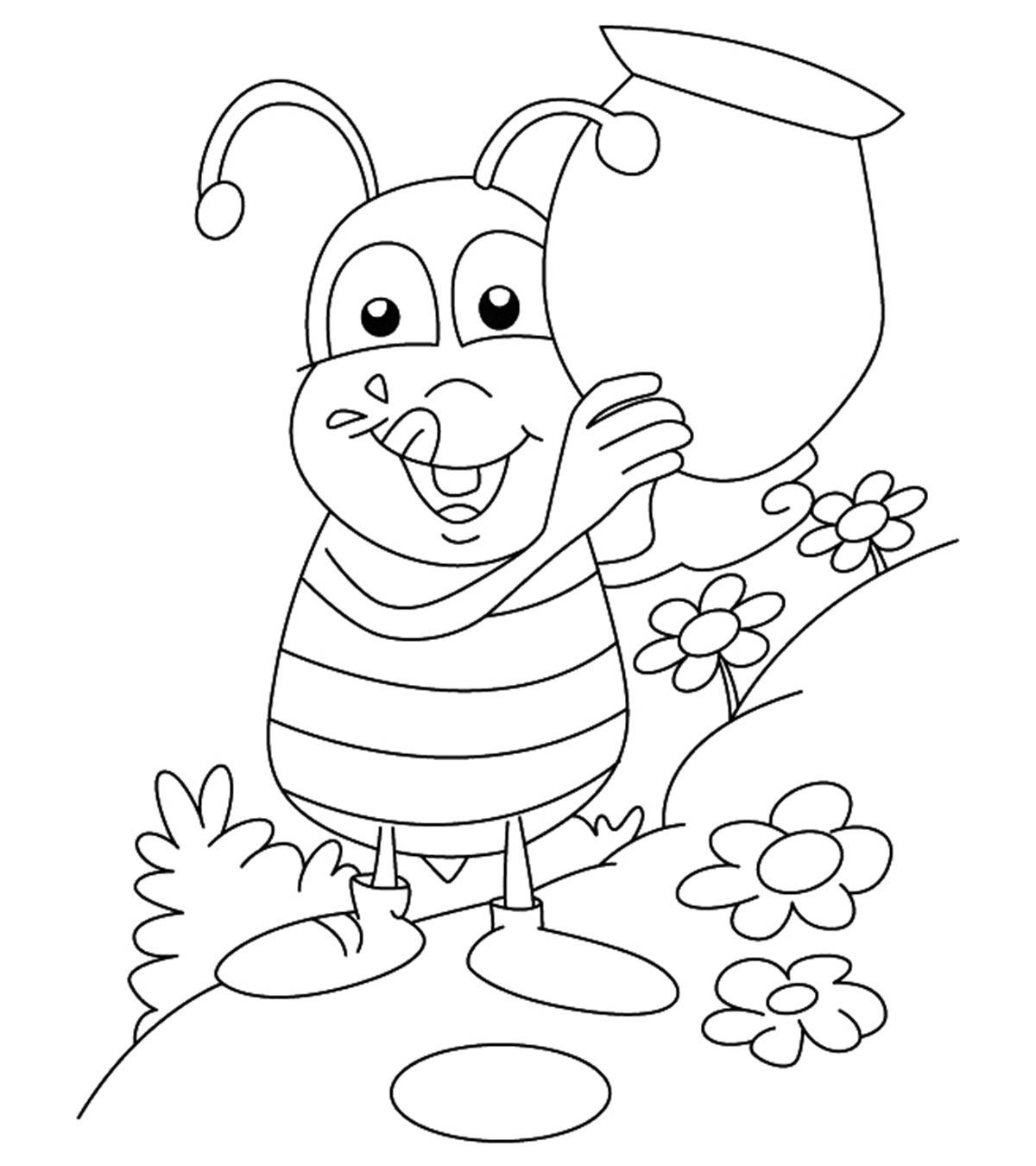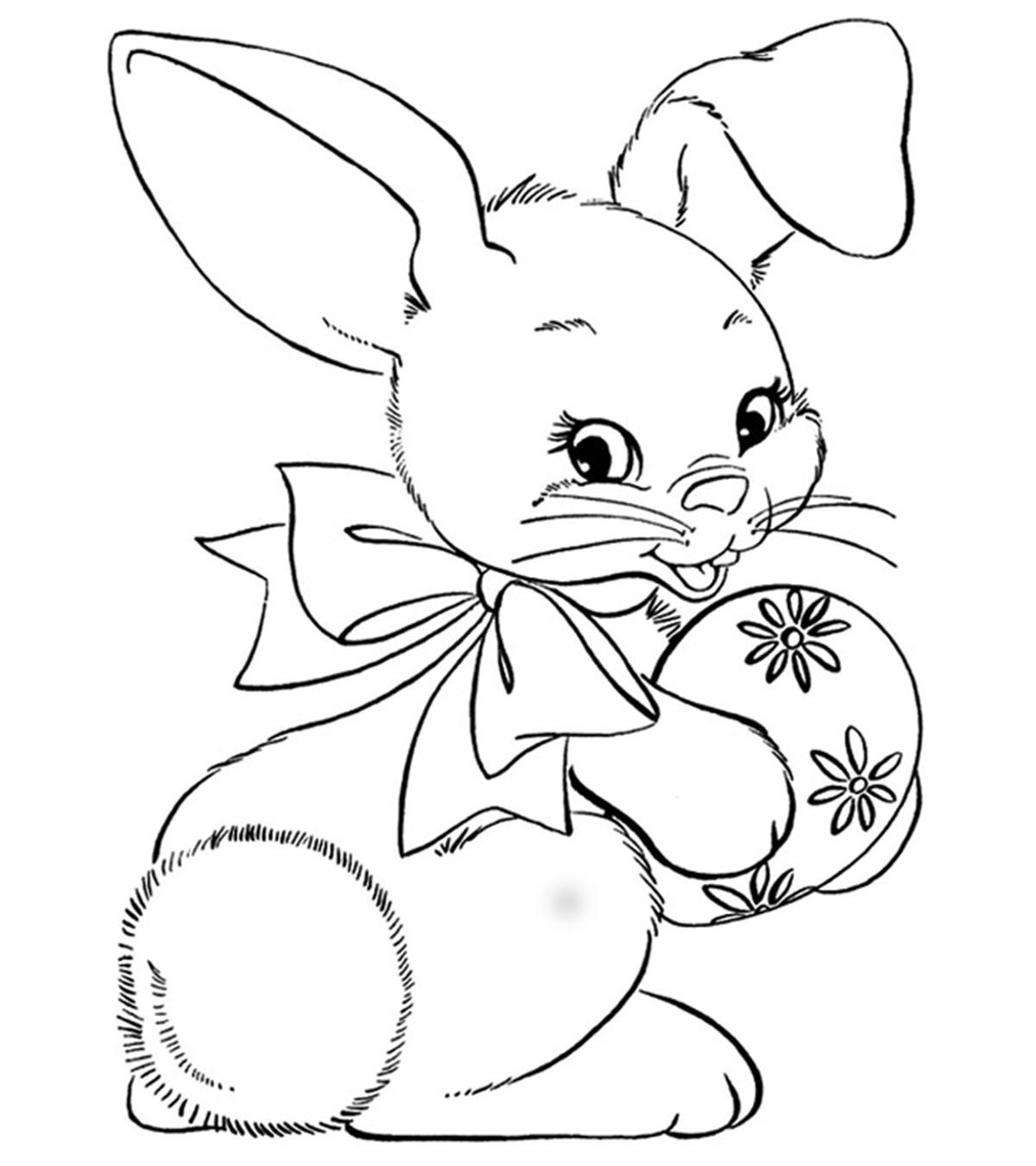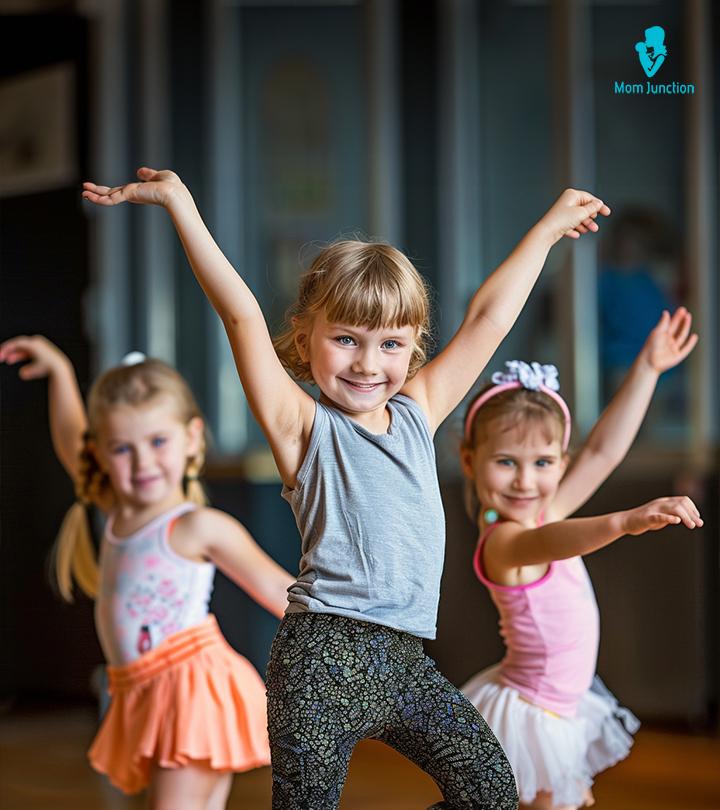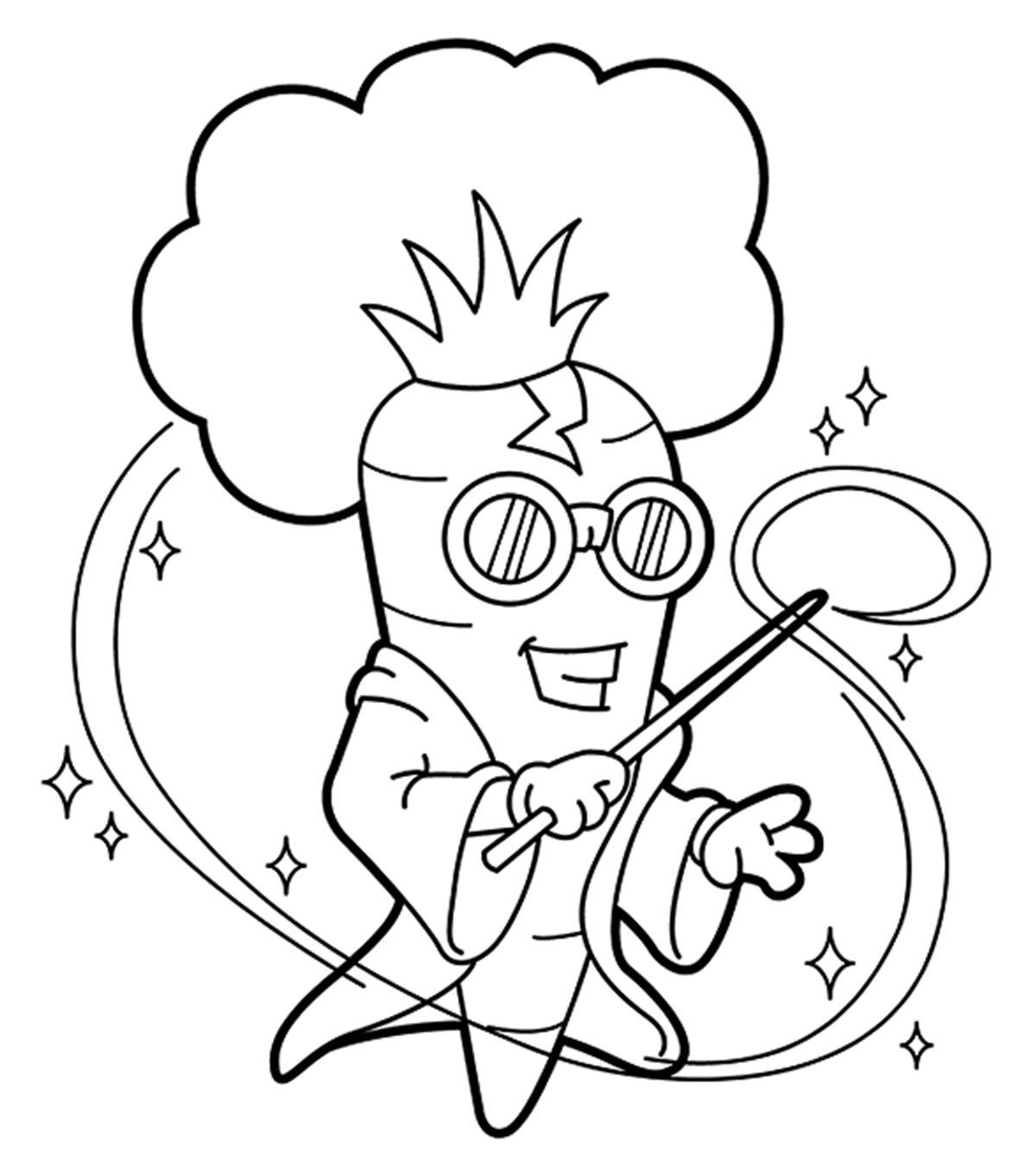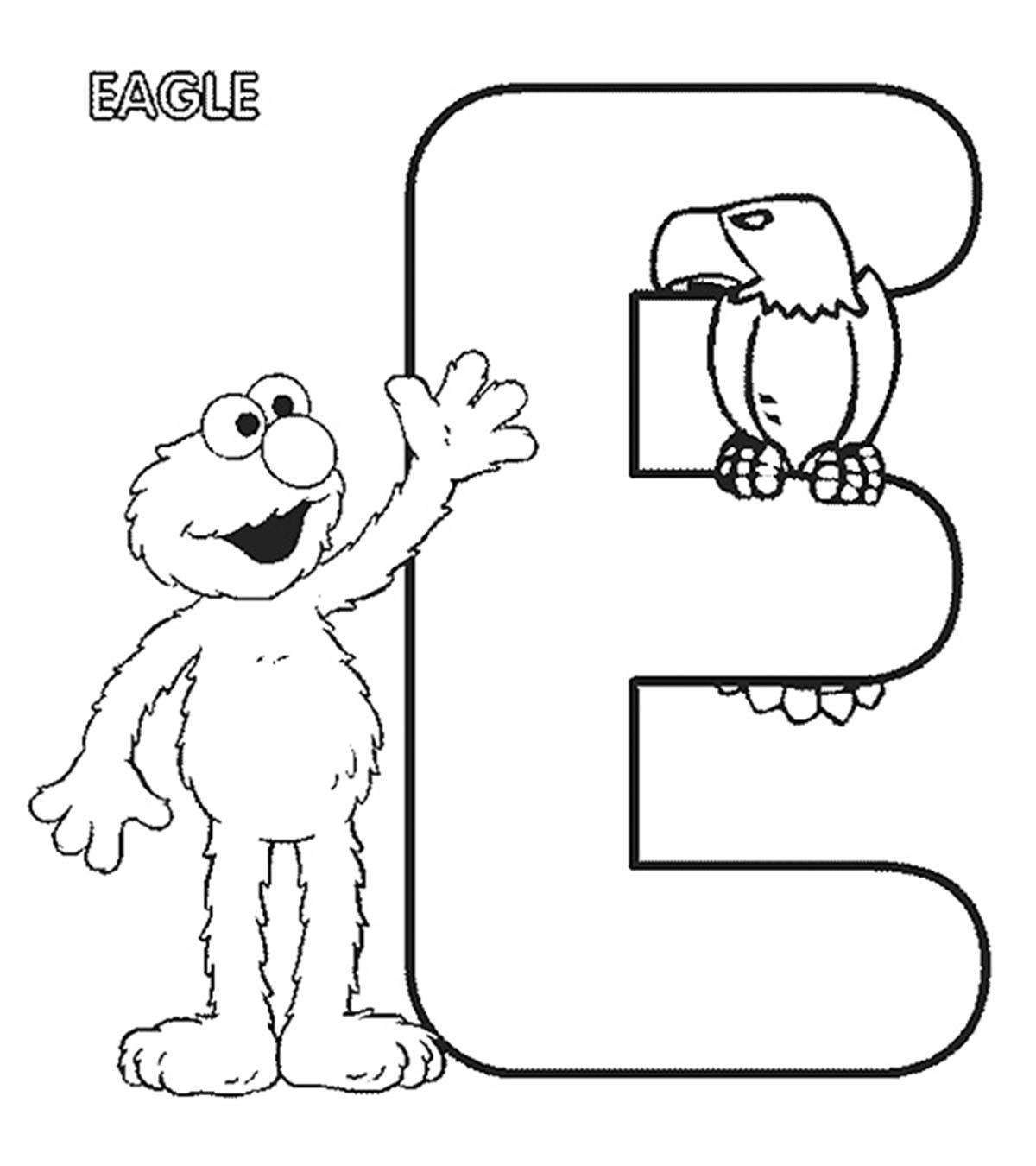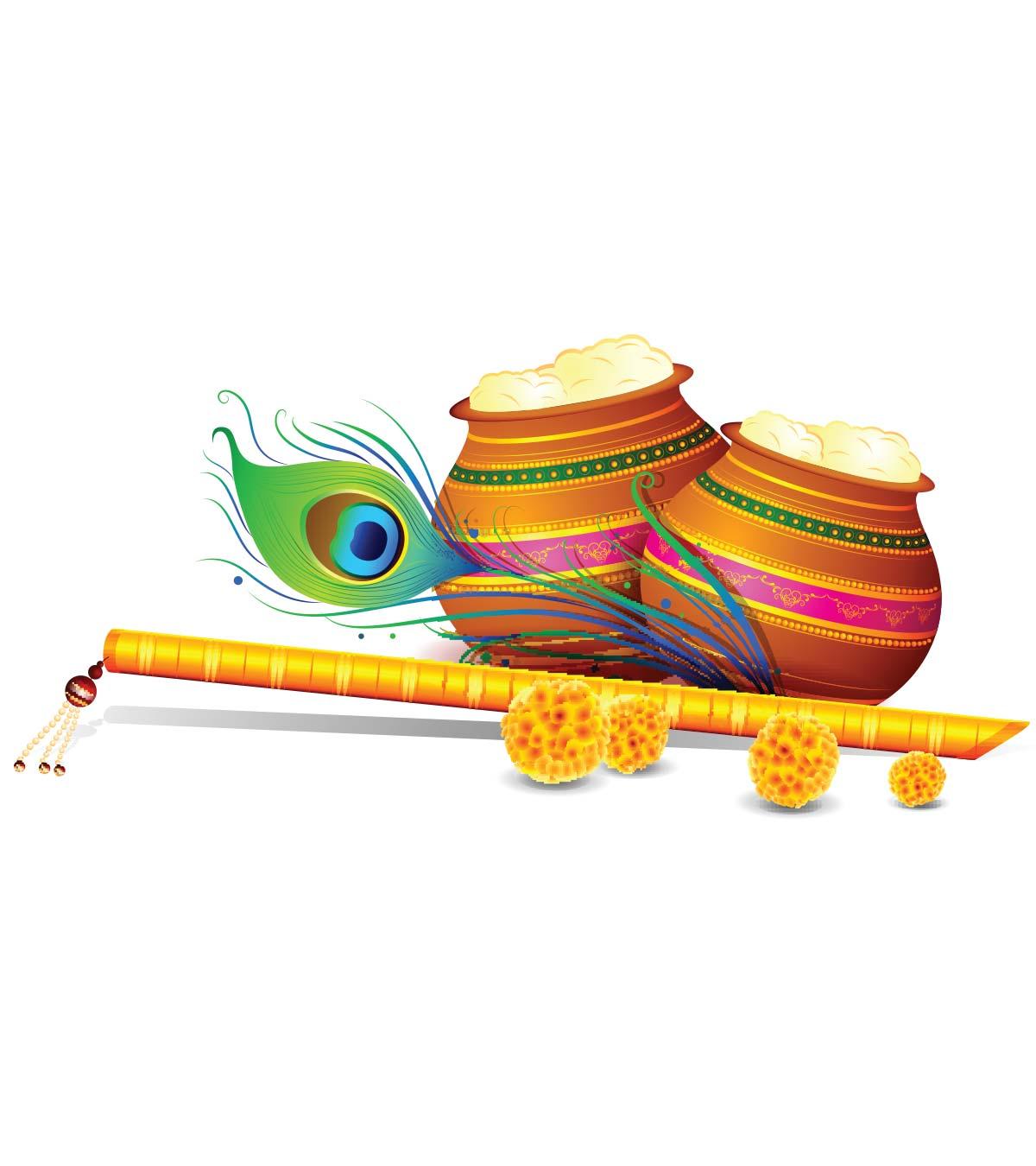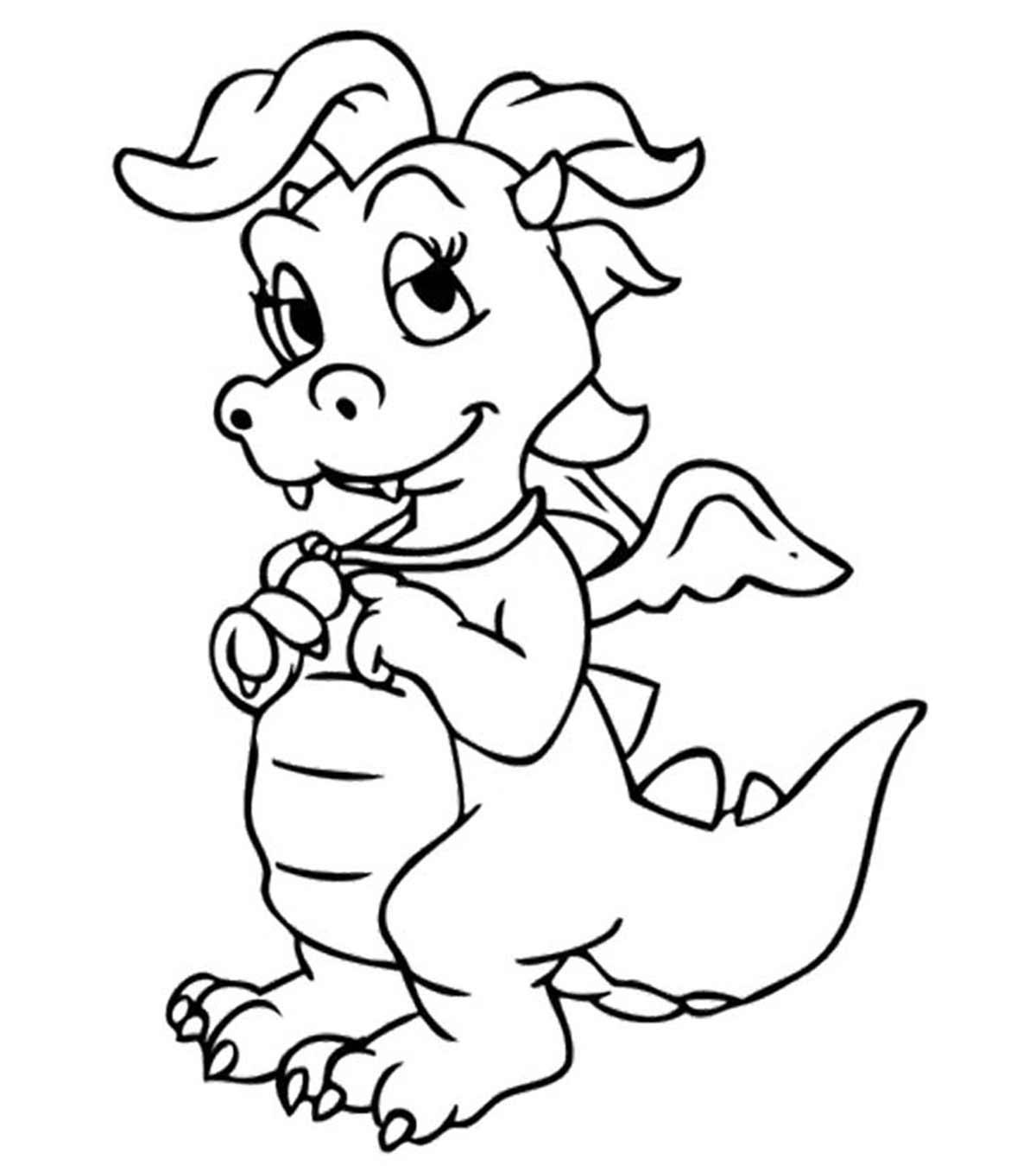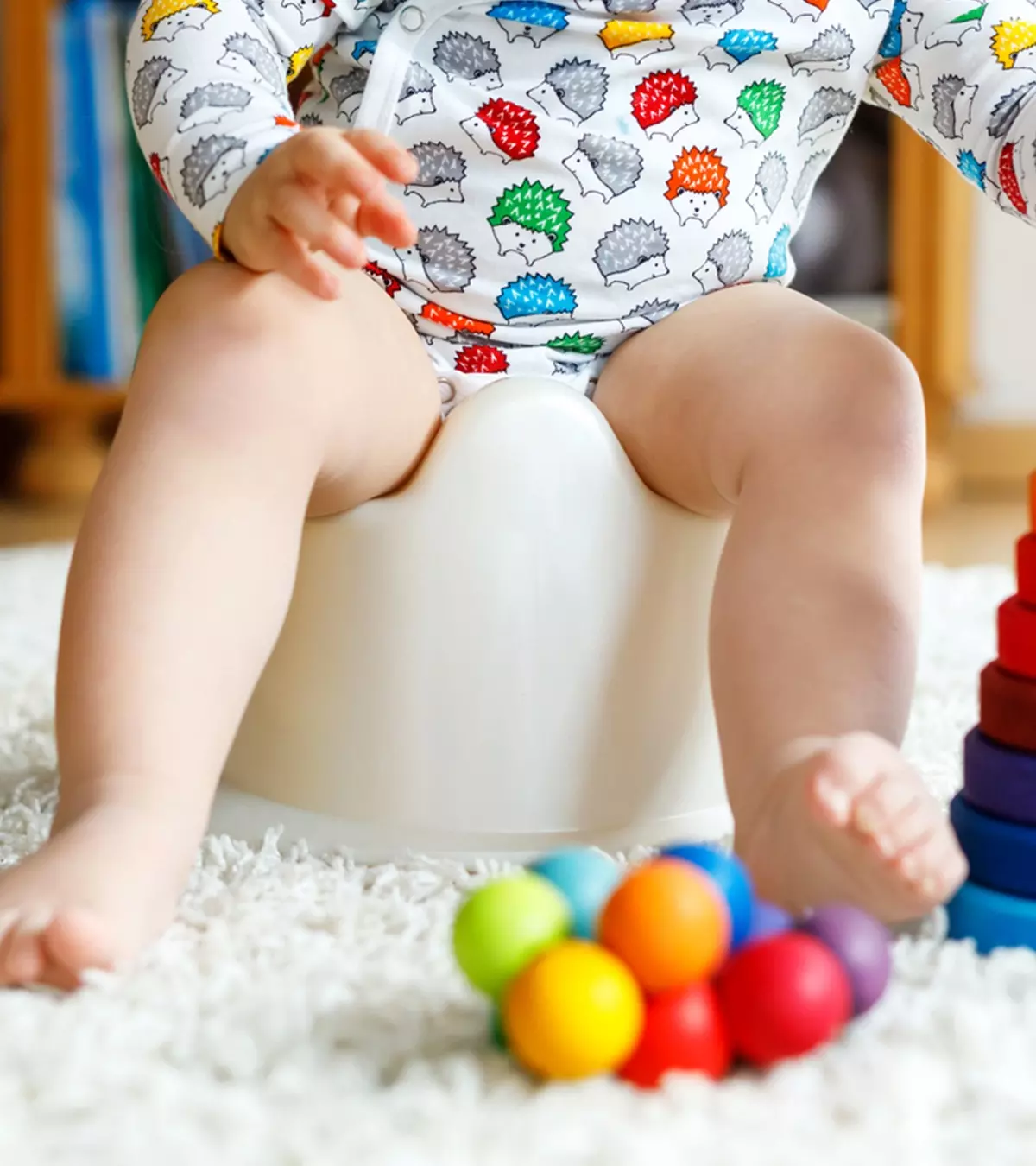
Image: ShutterStock
Potty training for toddlers may seem challenging, but it can be a simple task to achieve with the right tips and tricks. Teaching babies to use the potty seat every time they poop is easier said than done. In such cases, you can introduce potty training games for them. These games will make it easier for you to make them sit in the seat and gradually speed up the process.
When your baby is ready to understand the basics of what you are trying to tell them, you can start training them to use the potty seat. Read on for a few potty training games that you can play with your child.
21+ Potty Training Games
1. What is wee?
Take a glass of cold water, one each for you and your baby. While they drink it, explain how it goes down the pipe to the stomach and then comes out as wee. If the water is cold, they can feel it themselves, too. You can challenge them for a race to see whose drink will come out first.
Both of you can drink two to three glasses of water. Observe your baby’s face with patience at all times. When babies are about to pee, they get a blank expression on their face. When you spot it, ask them if their drink is coming out. Mention that it is wee. Play this game with consistency so that your baby realizes the sensation that precedes urination and informs you.
2. What is poo?
The game is similar to ‘What is wee?’ but is about understanding and to gather independence when they have to poop. When you begin potty training, talk about how food passes from the mouth to the stomach and further down. You can make them eat something to watch out for it as it comes out. It might sound unpleasant to you, but it is something to look forward to for your toddler.
As toddlers may not chew food as well as older children, you should try and explain the process. The next time you clean their underwear, talk to them about why it is necessary to use the toilet. Moreover, make them realize the importance of hygiene and cleanliness while using the toilet. Then take them to the bathroom and teach them to flush. You can even say something like, “Goodbye, poo!” to make your baby more excited about the process.
3. Talk about the body
Talking about the human body’s functions is key to helping your toddler understand and progress on how they pee and poop. Toddlers act on stimuli and do not think enough to process what is happening, and hence defecate or urinate when they feel like. To help them use their potty seat actively, they must be aware of digestion, hydration, and other bodily sensations, which you can explain in simple terms that they understand.
If you have a pet, show your toddler how the pet eats something and then excretes it after some time. Also, show them how the pet goes outside or uses a litter box to relieve itself. When the baby understands the process, they will also understand the importance of going to the bathroom, making the transition easier. But all of this is impossible without the support and guidance of the parents.
4. Wet and dry
Play a game of wet and dry with your toddler. Ask them to recognize pictures that show wetness and others that depict dryness. Next, place various things in the house and ask your baby to walk around, pointing out wet and dry items. Give them stickers for correct answers and watch them as they learn the meaning of feeling wet and dry. Slowly associate this technique with the pee and poop.
 Quick tip
Quick tip5. What’s my name?
Suppose you successfully got your baby on the potty seat. How do you make them sit there while they do their business? This game is the perfect solution. Point to different objects and let them name those objects. You can also play their favorite music in the first few days while they accommodate themselves with the situation. It will keep them occupied on the potty seat, and they won’t try to run the moment they get bored. You can also take this opportunity to teach them new words.
6. Race to the loo
Once your baby is aware of pee or poop sensations, it is time to teach them how to reach the potty seat in time. Even after knowing how to pee or poop, there could be a chance of mishappenings. You can shout, “I am going to pee! Let’s see who reaches first!” every 45 minutes or one hour and sprint over to the bathroom.
When your toddler sees you running, they may immediately get interested and come over to you. Hug them and let them do their business. If you wish, you can let them keep their nappies on. Eventually, they will understand that they must use the bathroom for peeing and pooping and can do it without their nappy. As they develop confidence to use the bathroom, praise them with positive reinforcement.
7. Magic potty
You can get some color-changing stickers that are blank when dry and show some images when wet. Stick them on the potty seat. Watch your toddler’s delight as they pee on the sticker, and it shows the image printed on it. You can also add blue color in the water. As your baby’s yellow pee hits it, the water turns green, surprising the baby.
8. Glittery lotions
You can find baby lotions with pleasant scents and glitter. Use these lotions every time your toddler uses the potty to wash their hands—it encourages your baby to stay clean. You can even take your baby to the store to buy their favorite lotion. Place the bottle in the bathroom so that your toddler can access it. After they are done with their business, ask them to take the bottle and apply the lotion to their hands. It is an efficient way to potty train your baby.
9. Bathroom steps
When there’s a sudden urge to use the bathroom, your baby might forget the way to the loo, especially in the earlier days of potty training. You can play this game in such cases. Get contact paper and cut it into big shapes. Your baby can decorate them as they like by using glitters, markers, or paints. Lay them on the floor to make a pathway to the bathroom. To make it more fun, let your toddler do it. When the urge hits, your baby knows where to go now.
 Quick tip
Quick tip10. Potty scavenger hunt
Babies are curious. Use their curiosity to your advantage when giving them potty training. Hide some potty-related things around the house and let your toddler find them. Once they uncover the objects, you can explain what those objects are used for. It will challenge and excite your baby and make them involved in the potty training process.
11. The potty song
Babies like music, and you can sing the potty song as your toddler sits on the potty seat. They might find it difficult to use the potty seat because they are used to the nappy’s softness. The potty song can make them get used to the potty. Sing the song when your baby is without a nappy and make them use the seat. You can also add some actions so that the routine becomes fun.
12. Blow bubbles
Keep a soap mixture and a wand near the potty seat so that your baby can access them when they are on it. When they blow bubbles, their abdominal muscles make the same movement required for them to poop. Blowing bubbles is an easy and fun way to potty train your toddler, making the entire process enjoyable. It is useful, especially if your toddler holds their poop when you remove their nappy.
13. Make a family chart
On a sheet of paper, write the names of all your family members, including your pets. Any time anyone goes to the restroom, let your toddler have the responsibility to make a mark against their name using stickers or markers. This potty training game teaches your toddler that everyone needs to use the loo and is a healthy habit. They will soon be asking for their name to be included on the sheet and make it a practice.
14. Bathroom explorer
Take your toddler to the bathroom and let them explore various things. Talk to your baby and explain the use of each item. Do it regularly. As they get used to the objects and their names, you can initiate the potty training.
15. Ask regularly
Toddlers often forget that they have to use the loo. Sometimes, they might even sit on the potty seat for a long time without doing the business. You have to keep an eye on them for the first few days till they get used to it. Some babies have particular facial expressions, some babies hold their legs together, and some toddlers’ tummy becomes hard to the touch. Be alert whenever you see such signs and ask them if they want a potty break.
16. Read books
Spending time on the potty could be boring for your baby, especially if they have left a play session to go to the loo. To overcome this, stack a few books in the bathroom so that they can read them sitting on the potty seat. You can even put a few potty-related books there so that your toddler knows more about it.
 Quick tip
Quick tip17. Potty train dolls
If your toddler has a favorite doll or a plush toy, ask them to potty train them. They can take their toys to the potty seat and explain to them what they are doing there. You can even get a mini potty seat for the toy to sit alongside your baby. Make sure your baby washes their hands thoroughly each time they take a toy to the bathroom. It is also best to have a separate potty training doll that your child plays with in the bathroom.
18. Count the squares
Once your toddler starts using the regular loo, there are bound to be accidents, including a clogged toilet. It could happen as your baby does not know how much toilet paper to use and might end up using a lot. Teach your toddler about toilet paper use by asking them to count the number of squares from the roll. The added advantage of this game is that they can learn their numbers.
19. Time the potty
Set a timer when you are changing your toddler’s diaper and show them when you are done. Tell them how long it takes you to do it and how complex it is. The next time they wear pants, you can time them on the potty. Show them how faster it is than changing the diaper and easy too.
20. Find the potty
When newly trained, your baby might be reluctant to use restrooms in places other than home. To overcome this problem, you can play this potty training game with them. Keep your baby’s potty seat in another room without them knowing. Then, hand over a toy and ask them to go along with their ‘friend’ to find the hidden potty seat. Use the same toy every time. While stepping out of the house, carry the toy with you. When your toddler is not ready to use a new bathroom, the toy can help them overcome inhibitions.
Potty training is an important milestone in your toddler’s life. It signifies that they can control their bladder and bowel movements. It also means that you can do away with diapers. However, potty training is a complicated process for your toddler to learn. Encouragement with lots of hugs and rewards when they get it right is important. You can start with an easy step and then proceed with other steps as they grow and set up goals for your little one to achieve. When they don’t, do not scold them. Teach them to do better in a way they understand, and they will learn it soon.
21. Make a potty chart
One of the best ways to encourage your toddler to use the potty seat is by making a chart. Decorate it with their favorite colors and designs using glitter and cutouts. You may create stars with glitter paper and keep them in a jar near the bathroom. Stick the potty chart on the bathroom door. Every time your baby successfully uses the potty seat, they can take a star from the jar and paste it on their chart. To motivate them further, you may offer a treat after they collect a certain amount of stars. This method is called positive reinforcement and encourages your child to use the potty more often.
22. Potty time tic-tac-toe
Potty time can be extra fun with this game for you and your toddler. Get a sheet of paper and two different markers. Draw a tic-tac-toe grid with three squares in each row. Take turns marking X and O in the squares. The goal is to get three in a row, either horizontally, vertically, or diagonally, to win. It is a simple way to make potty time enjoyable for your little one. So, the next time you are in the bathroom, grab some paper, play tic-tac-toe with your toddler, and turn potty time into a playful adventure.
Frequently Asked Questions
1. What age should a toddler be potty trained?
Parents should start potty training their children once they are able to control their bladder movements and know how to use the toilet. This usually happens by the time they are about 18 months. Therefore, one can start toilet training their child from about two to three years (1).
In this context, K. Lazaro, a mother, shares how she gave potty training to her daughter at the right age. She writes, “I saw the signs that she is ready, and so I pulled out the toddler potty I have been keeping in the garage… At first, I tried to introduce it to her but she would always say ‘No!’ I figured that she was not ready yet so I stopped pressuring her.
“After she turned 3 last August 8… I once again introduced the potty to her. This time, she is more responsive. Since we are usually at home, I now try to make her wear some training pants. I would ask her to sit down on her little potty every now and then. Sometimes, she is actually the one who tells us that she needs to go (i).”
2. Do daycares help potty train?
Introducing a child to toilet training in the daycare can be beneficial as the presence of other children can help encourage them. Additionally, the teachers present can also help with the process in a better way.
3. Are there any risks associated with potty training games for toddlers?
Initiating potty training too soon may result in accidental urination or pooping as their bladder and bowel control may not have completely developed yet. Additionally, pressuring the child may cause them to push harder and tighten the sphincter, further restricting bowel movement or leading to constipation (2).
4. What are the signs that indicate a toddler is ready for potty training?
Determining your child’s readiness for toilet training involves several cues. These cues may include regular and predictable bowel movements, staying dry for more than two hours or during naps, signaling a diaper change by bringing a clean diaper when soiled, and removing a wet diaper independently. In addition, if your child expresses an interest in using the toilet or potty and talks about wearing “grown-up” underwear, it indicates readiness. However, remember that each child is unique, and consulting with a healthcare provider is beneficial for personalized guidance (2).
5. Are there any potty training tools available for toddlers?
Potty training tools for toddlers simplify and enhance the transition from diapers to toilet use. These tools include potty seats, step stools, books, dolls, reward charts, and apps. Potty chairs provide a child-friendly seat, step stools aid in reaching the toilet, and potty training theme books, apps, and dolls offer guidance and interactive learning.
Potty training for toddlers can be done successfully with the appropriate tactics and time. Look for symptoms of toilet training readiness, such as hiding pee or poop and pulling damp diapers. Teaching about the body, what is wee, poo, etc., can help the child in potty training. When your child is aware of pee and poop sensations, you can teach them to use potty chairs. Potty training can also be more successful when you stick to a regular routine. Ensure you begin potty training when your baby is naturally ready than forcing them to reach developmental milestones.
Infographic: Making Toilet Training Time Fun
Yes, every parent has been there, and we know that potty training a toddler is no cakewalk, but you can make the process easy and fun for your child by following the tricks stated in the infographic below. Illustration: Momjunction Design Team
Key Pointers
- You may explain to the toddler why it is necessary to potty in the toilet while cleaning their nappies.
- Allow them to use the toilet and encourage them to use it next time they pass urine or bowel.
- You may begin potty training when your baby understands the urge to pee or poop, and using potty seats can help them.
Image: Dall·E/MomJunction Design Team
Personal Experience: Source
MomJunction articles include first-hand experiences to provide you with better insights through real-life narratives. Here are the sources of personal accounts referenced in this article.
i. A reflection from potty training.https://partandparcel2014.wordpress.com/2015/09/16/a-reflection-from-potty-training/
References
Read full bio of Catherine Moore
Read full bio of Rohit Garoo
Read full bio of Vibha Navarathna






